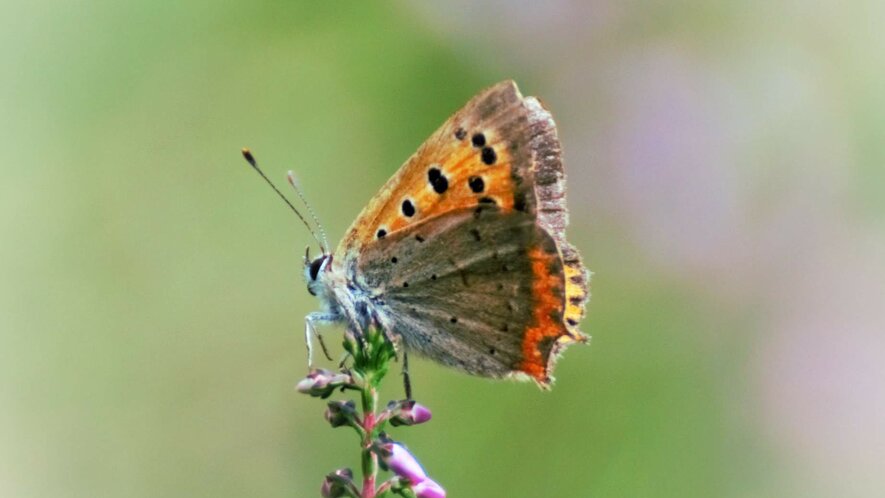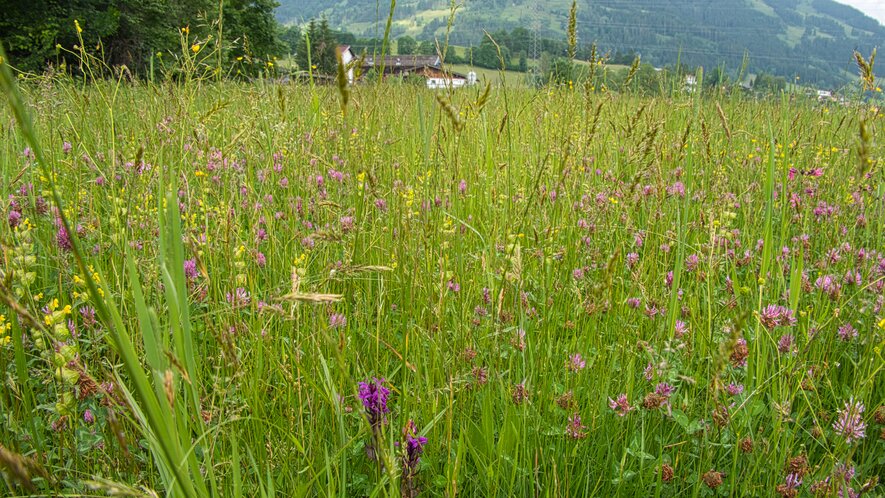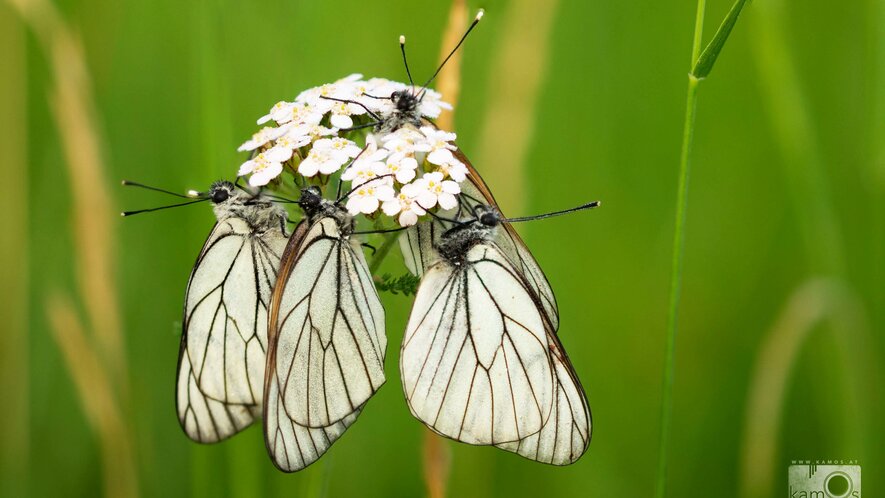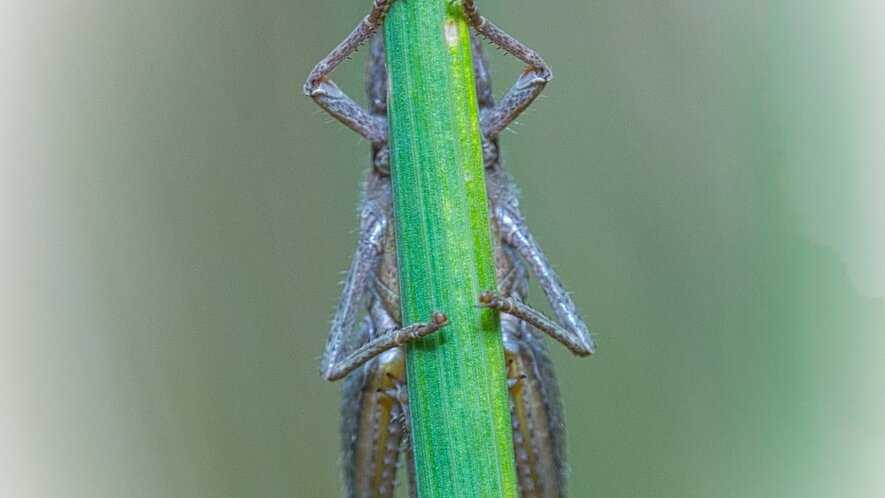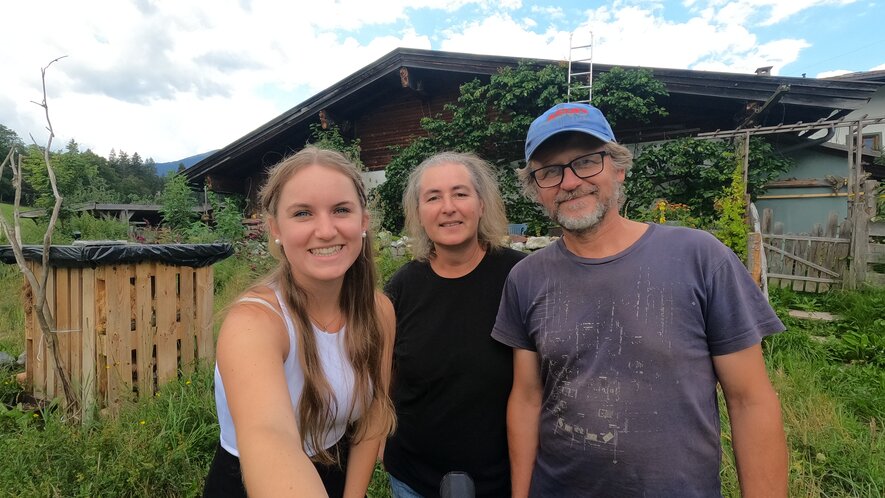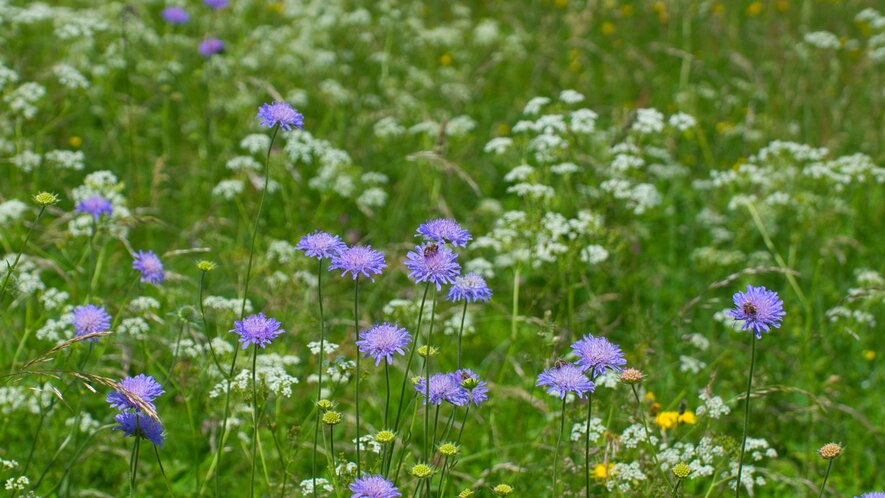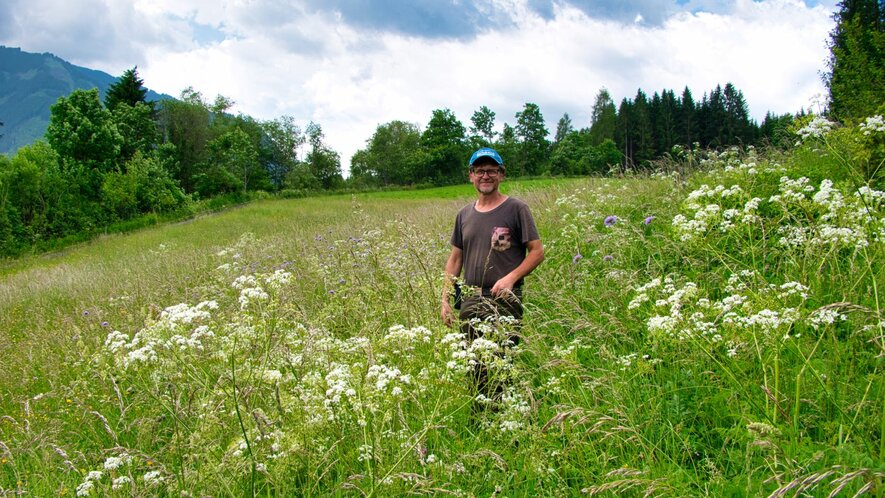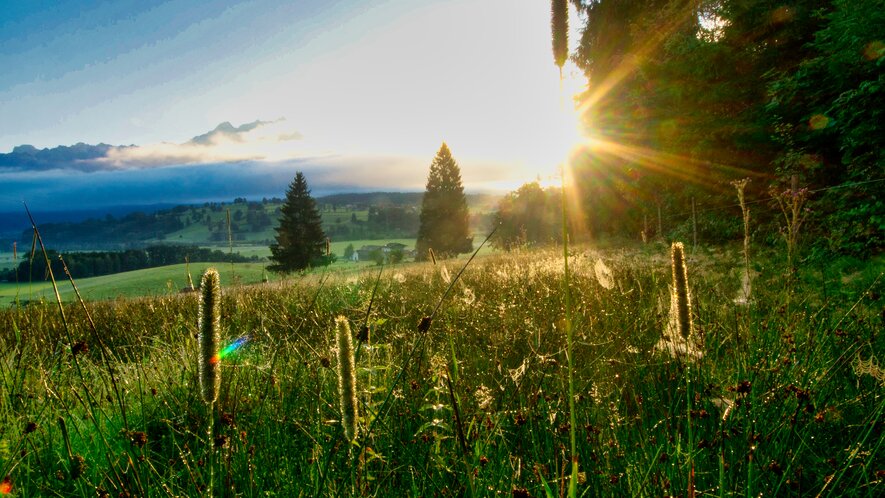The Gruberhof: "Where the spider and grasshopper say good night to each other"
At the beginning of August, we were visited Karin and Ernst Mosshammer at the Gruberhof in Saalfelden and were inspired by their love for animals and plants. We became aware of the two through an award, namely the "Bio-Award" from Bio-Austria. An award that stands for future-oriented, sustainable agriculture. It is incredibly interesting to discover how much there is on their farm, how the two perceive nature and incorporate it into their lives. According to the motto "Make visible what would not have been perceived without you", they try to promote biodiversity on their farm and in the process, they keep discovering new inhabitants.
It is worth taking a closer look
The Gruberhof is not only home to cows, chickens and cats. What is special about this farm is that attention is paid to the small animals. Whether butterflies, grasshoppers, spiders, snakes, snails and still numerous other animals and insects: Everyone is welcome. Where some are afraid of contact, the two take a closer look and are happy about every new discovery. "You have to learn to look more closely again and perceive nature - only then it can be protected," Karin says. "Often it is unknown what is around us. When we look more closely, it becomes clear what is in front of us and that we need to protect it".
The first step
Karin is a passionate photographer. One of her favourite subjects are, and always has been, butterflies. Unfortunately, the population decreased visibly in recent years, so the animals and therefore the motifs were missing. There was called for action! By means of a small butterfly breeding on the farm, the first step could be taken. "On closer inspection, it was noticeable that the bees in the fields were also becoming fewer and fewer. Here, we had to act as well," Karin says. "The little things increased. Every year we have new ideas and try to implement them."
Tackling pays off
"In peace lies strength", is a proverb that also counts for nature. Often you see soil dug up by agricultural machinery or well-fertilized meadows. But this does not have to be the case. The soil can recover and regulate itself. It just needs time. Give it this time", Karin and Ernst express. "At first, it takes years, but now many flowers come that were never sown", they report proudly. So, the waiting pays off.
I was interested in how they mow their pastures after their conversion. Mowing produces necessary fodder for the cows, but it also destroys a lot of habitats for smaller animals. The two organic farmers have an answer to this as well: they changed their mowing technique last year. The field is now mowed more gently, the grass is not cut quite as deep as it used to be, and the animals have more time to escape after the cut.
As a result of the longer processes, the barn size has been reduced. Since a farm is a source of income, one might think that the change was a financial step backward, but this was not the case. The decrease in pressure to perform allowed for visible savings in operating costs. What was unexpected was that other sources of revenue were added, such as support from institutions. However, what is most important to them is the quality of life they have gained which no one can take away from them.
What we can do
Even we as individuals can take simple steps to protect biodiversity and thus nature. How? One way would be to weed. After all, not all weeds are created equal. Plants that are less beautiful to us are the habitat of a wide variety of animals. Nettles, for example, are home to many caterpillars. If we leave them, the caterpillars can turn into beautiful butterflies. The garden also does not need to be mowed constantly. Get rid of the robotic lawnmower and get into biodiversity. This restores natural habitat and increases wildlife. I learned on my field trip that there are insects that feed exclusively on one plant. If we cut them, these animals have no chance of survival.
The 'bullshit' never stops
By changing their mowing technique, the farmers have already taken a big step. "But the nonsense never stops", Karin said with a laugh. Every year they come up with something new, and that is a good thing. They get confirmation from animals that only show up when there is good biodiversity. This is among one of the highlights they told me.
Best organic farm in Pinzgau
Recognition and praise from outside are always appreciated. Karin and Ernst were able to feel this in March this year through an award. Bio-Austria honoured the two farmers with the Austrian Bio-Award for their future-oriented and sustainable agriculture. Best organic farm in Pinzgau is undoubtedly a title to be proud of.
It was truly interesting, what Karin and Ernst had to tell. On this day I noticed that I do not perceive nature enough. Often, I walk too fast and have no time to see what is in front of me. Let us take a closer look and admire what the world of nature has to offer. What have you already discovered?



